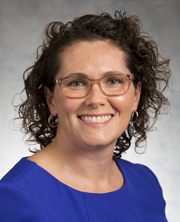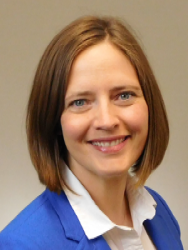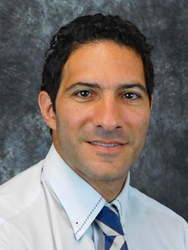DEI Spotlight

Cuong Pham, MD
Dr. Cuong Pham’s initial path in medicine was centered on immigrant and refugee health. He was born in Vietnam and his family escaped Vietnam by boat when he was a toddler. He was raised in Little Canada, Minnesota and is a proud life-long Golden Gopher from his undergraduate education to residency training in internal medicine and pediatrics. In that journey, he focused on DEI work via clinical care, medical education, mentorship, and community engagement.
Currently, he does primary care at the Community University Health Care Center (CUHCC) which is a federally qualified health care center in the Phillips Neighborhood of Minneapolis. He later became board-certified in Addiction Medicine through the Clinical Pathway as he realized that his community was suffering from the opioid crisis. He has recently transitioned away from hospital medicine as he co-created the Addiction Medicine Consult service at the University of Minnesota Medical Center. His addiction work is centered on harm reduction and patient-centered care.
He holds several roles in DEI work. He is the Graduate Medical Education DEI Faculty Lead and Associate Vice Chair of DEI for the Department of Medicine. He is currently building a program called University of Minnesota Medical DEI Coaches to support medical students through their backgrounds and identities. He is the faculty advisor for the local chapter of the Student National Medical Association and the Asian Pacific American Medical Student Association. He is the Co-Director of Hennepin Health Project ECHO on Race Equity and Opioid Use with the goal to build collaboration with healthcare systems and community leaders. Dr. Pham is also Co-founder and current President of Minnesota Doctors for Health Equity which educates health professionals on advocacy and equity with community engagement.
THE DOCTOR WHO FOUND HIS PLACE: AND THE PATIENT AND STUDENT UNDER HIS WING
Previous Spotlights

Abbie Begnaud , MD
Dr. Abbie Begnaud is an Associate Professor in the Division of Pulmonary, Critical Care, Allergy and Sleep Medicine. She arrived at the University of Minnesota in 2013 passionate about lung cancer but unaware of the health inequities in this disease. She was fortunate enough to be invited to join the Minnesota Precision Medicine Collaborative in 2016 as lead of the lung cancer demonstration project. In doing this work Dr. Begnaud was part of a team who partnered with a Central Minnesota tribal health department to understand and improve health disparities related to commercial tobacco use in Indigenous Minnesotans. The outcome of this project was a retrospective analysis of precision treatments for Indigenous Minnesotans with lung cancer. More importantly, this project opened the door to greater partnership with and investment in the health of Indigenous Minnesotans.
In collaboration with the American Indian Cancer Foundation and the Native American Community Clinic, Dr. Begnaud continues to learn about Indigenous ways and how to integrate those with medical guidelines to reduce the burden of lung cancer. Together, they developed a culturally tailored lung cancer screening brochure that is publicly available. Recent projects include qualitative research and a lung cancer screening promotion project in the Native American Community Clinic and tailoring a commercial tobacco cessation mobile application with Dr. Dana Carroll from the School of Public Health. Next, we are planning community screening events to educate Indigenous Minnesotans about improved survival of lung cancer through early detection.
In 2019, Dr. Begnaud was selected as a Program in Health Disparities Research Health Equity Leadership and Mentoring (HELM) fellow and later that year participated in the Bias Reduction in Internal Medicine study, including training as a facilitator for the Department of Medicine. Dr. Begnaud has contributed to the efforts to improve diversity of the Medical School, Internal Medicine Residency and the Pulmonary, Allergy, Critical Care Division and through interviewing medical school, residency, fellowship and faculty candidates for each of these.

Taj Mustapha, MD
Dr. Taj Mustapha has been a leader in DEI work since coming to Minnesota as a Med/Peds resident and now as faculty in the Division of General Internal Medicine. Coming from a direct service background working with homeless youth, she understood the barriers of many of our patients and wanted to advance equity, particularly in marginalized populations. She has mentored and trained countless physicians previously as the Associate Program Director of the Med-Peds Residency Program and the Director of Clinical Coaching for the medical school. In this work, she has pushed our medical community with foresight and compassion to be more inclusive and thoughtful for our trainees, patients, and ourselves. For instance, her talk titled “Hardworking Hannah gets Honors, but Decisive David becomes Division Director: Gender Bias and Learner Evaluations” teaches us the impact of biases can affect our learners and ultimately our care for our patients.
After the murder of George Floyd, our health system recognized that Dr. Mustapha would be crucial to help transform our health instution and medical school under an anti-racist framework. She has since been leading the HOPE (Healing, Opportunity, People and Equity) Commission to help our communities heal through listening sessions and collaborations. Most recently she was charged as the inaugural Chief Equity Strategy Officer of M Health Fairview. Concurrently she also has the role of the Assistant Dean of Diversity, Equity, and Inclusion in the University of Minnesota Medical School. Ultimately she is the “Collaborator in Chief” for our medical school, health system and community.

Beth Rogers, MD, MAS
Dr. Elizabeth Rogers, board certified in both Internal Medicine and Pediatrics, is an Assistant Professor in Internal Medicine and Pediatrics at the University of Minnesota and is a faculty member in the Program in Health Disparities Research. After finishing her residency training at the Harvard Brigham and Women’s Hospital/Boston Children’s Hospital program, she completed a Primary Care Research Fellowship at UCSF. Her Master of Applied Science in clinical research included an emphasis in implementation and dissemination science. Her research focus is to design, implement, and evaluate patient-centered intervention strategies based in safety net primary care settings to improve care quality and health outcomes. Dr. Rogers was named the UMN CTSI’s 2018 Junior Mentor of the Year, and she received the 2019 UMN Department of Medicine Women’s Early Research Career Award.
Current projects focus on understanding barriers and facilitators to a pilot intervention to improve diabetes care quality for patients with low-income receiving care in safety net primary care clinics. She also examines how patients perceive treatment burden when managing diabetes and comorbid conditions, and how this is linked to health-related social needs, language concordance with providers, glycemic control, and engagement in care. This work aims to identify potential future interventions that may improve patients’ sense of treatment burden and quality of life, and diabetes outcomes including minimizing disparities in groups disproportionately affected by health inequities.
Dr. Rogers provides primary care at the Community University Health Care Center in the Phillips neighborhood of Minneapolis. She is a founding board member of Minnesota Doctors for Health Equity, a state-wide non-profit with a mission of educating health professionals to work toward health equity. Though Dr. Rogers’ current passions lie in striving for health equity locally, she has spent extensive time working and learning in international settings mostly in Latin America, including Nicaragua, Guatemala, El Salvador, and Ecuador. She served for a decade as a board member for Doctors for Global Health (DGH), a non-profit organization that builds long-term relationships between people and communities around the world to find effective solutions to improving health and social justice issues. She credits her time living in and volunteering with DGH in a rural El Salvador community as a medical student for 6 months as shaping her perspective on health equity, including the idea of community accompaniment, human rights, and community-oriented primary care.

Jose Debes, MD
Jose Debes, MD is an Associate Professor in the Department of Medicine. He also has an adjunct appointment in the School of Public Health at UMN, and in the Division of Gastroenterology and Hepatology at Erasmus University in the Netherlands. During his clinical training (both in Medicine and Gastroenterology at UMN) he became interested in the intersection of translational research and global health, specifically in the impact of local factors in different regions of the world on viral hepatitis-related liver cancer. Currently, Dr. Debes leads research projects in the field of hepatology in a number of countries including the Netherlands, Tanzania, Ethiopia, Argentina, Ecuador, and Brazil.
In South America, he founded and leads the South American Liver Research Network, a research system that includes six South American countries and that has been instrumental in defining the epidemiology of liver cancer in the region, as well as in identifying biomarkers for the early detection of this tumor. He founded and leads the African Hepatitis B Network, a system that includes a dozen countries in the continent, stimulating research and promoting awareness about the prevention of viral hepatitis.
The networks provide a platform for academic and research development in resource-limited countries. Most of the work is funded by the NIH, the European Union, and several private foundations. In Africa, the Hepatitis B Network gives a voice to a large number of healthcare workers to reflect and learn about issues pertaining to hepatitis B awareness and vaccination. Dr. Debes has also established hepatitis B programs in Ethiopia and Tanzania. These programs aim to educate individuals living with hepatitis B so to maximize the prevention of complications, provide access to screening for liver cancer, and implement early treatment when appropriate. These programs also allow for the mentoring and training of local junior faculty who otherwise would not be able to develop a research career and foster collaborations between the University of Minnesota and health centers across the globe.